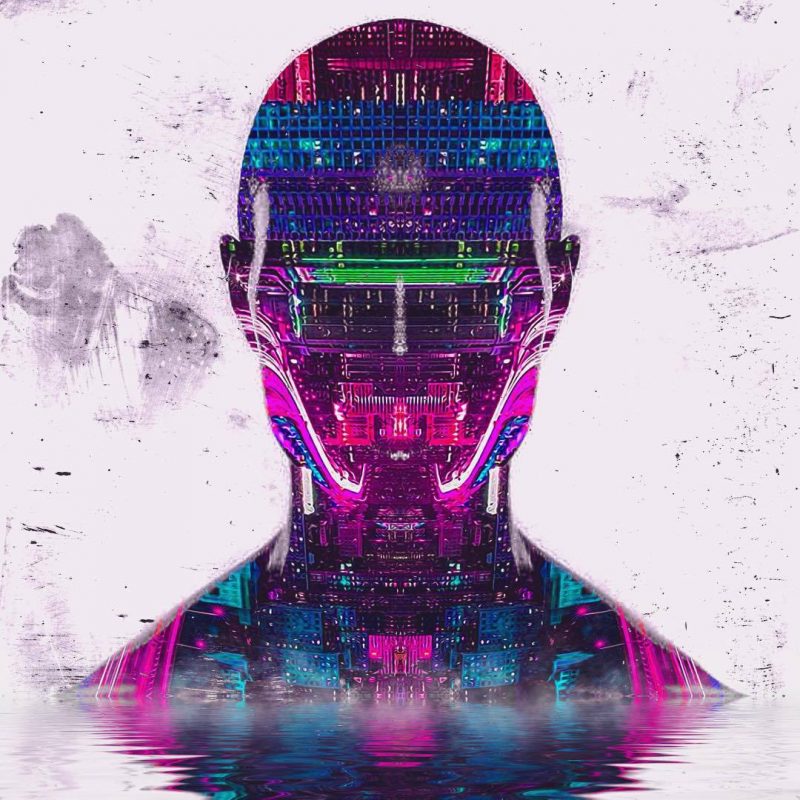Unleashing the True Potential of AI – Building the Exponential Law Firm


By Rohit Talwar
Artificial Intelligence (AI) represents both the biggest opportunity and potentially the greatest threat to the legal profession since its formation. This is part of a bigger global revolution – where society, business and government are likely to experience more change in the next 20-30 years than in the last 500. This large scale disruption is being driven by the combinatorial effects of AI and a range of other disruptive technologies whose speed, power and capability is growing at an exponential rate or faster – and which both enable AI and are fed by it. These include quantum computing, blockchain technology, the internet of things (IoT), big data, cloud services, smart cities, and human augmentation – all of which could literally be hundreds or thousands of times more powerful and impactful within a decade. The resulting changes will literally lead to the total transformation of every business sector, the birth of new trillion dollar industries and a complete rethink of the law, regulation, legal infrastructures, and the supporting governance systems for literally every activity on the planet.
At present, the sheer scale of the opportunity is lost on all but a few genuinely forward thinking players across the legal ecosystem. The majority in the sector are either blissfully unaware of what impact AI could have or they are becoming obsessed with the internal applications of AI. In many cases, a natural tendency towards risk aversion is leaving firms paralysed by fears of declining revenues, commoditization, the depersonalisation of the sector, and the loss of professional roles. These fears have in turn driven reluctance to even understand let alone embrace the true opportunity presented by AI and its disruptive technology cousins.
I believe law firms can and should escape from conventional wisdom and look to drive exponential improvements in internal performance and market growth by exploiting the opportunities presented by AI and other emerging technologies. Indeed, some in the legal sector are already diving deep to understand what they are and their true commercial potential. However, many are still more worried about the potential negative impacts of AI on the US$650 Billion legal services market and are proceeding cautiously as a result. I would argue that the real exponential growth opportunity lies in helping the world respond to the transformative impact of AI on the ~US$78 trillion global economy.
Driving Internal Transformation
The pace of AI development is stunning – even to those working in the sector. Indeed, the resounding victory of Google DeepMind’s AlphaGo over the world GO champion in March 2016 demonstrated just how far machine learning – the core technology of AI – has evolved. With over 560 million possible moves, the system was not taught to play GO. Instead it was equipped with a sophisticated learning algorithm that allowed it to deduce the rules and possible moves from observing thousands of games. This same technology can now be used across the various datasets held by law firms. AI has truly transformative potential – with a wide range of legal applications emerging, such as:
- Inferring the likely outcome of a case
- Determining the best structure for a contract
- Suggesting how best to approach a new matter, or
- Making sense of literally billions of data points across the web to spot new and emerging risks and legal threats.
I envisage five broad categories where we will see increasing use of AI within law firms in the next three to five years:
- Automation of legal tasks and processes
- Decision support and outcome prediction
- Creation of new product and service offerings
- Process design and matter management
- Practice management.
In addition, we are likely to see the growing use of AI both by in-house legal teams and in a range of online platforms offering direct services to businesses and individuals. AI will also power developments using blockchain technology (the secure transaction encoding mechanisms that underpin most digital currencies such as Bitcoin) e.g.:
- Smart contracts encoded in software which require no human intervention
- Distributed autonomous organisations (DAOs) with no human employees that exist entirely in software
- Decentralized Arbitration and Mediation Networks – which effectively operate as ‘opt-in’ global justice systems for commercial transactions, and which sit outside the existing national and global mechanisms
- Algocracy (Algorithmic Democracy) – creating global codes of legal transacting by codifying and automating legal documents, including contracts, permits, organizational documents, and consents
- Rewriting and embedding the law in software – e.g. automatic fines, drawing evidence from the IoT, standardized open source legal documents, and automated judgements.
So How Might AI Evolve Within the Sector?
Here is a plausible timeline of AI developments in the legal sector over the next five years:
The Next 18 Months
- Growth of law firms establishing internal technology innovation labs, creating seed funds to invest in legal technology start-ups, and running joint experiments with technology providers and clients
- A number of firms and in-house teams will run AI trials and develop applications than create smarter internal processes
- A range of trials and applications of AI for lawyer decision support
- Launch of the first client facing AI applications and new AI-enabled products and services
- Growth of FinTech – rising pressure from financial services to embrace AI/ Blockchain technology – with legal cost reduction a key driver
- Emergence of Blockchain Smart Contracts and DAO’s
The Next Three Years
- Clear evidence of lawyer replacement by smart technologies
- Widespread and accelerating deployment of AI on core law firm processes
- Meaningful penetration of AI into in-house legal
- First truly AI-centric law firms
- Significant range of AI-based solutions offered direct to consumers and SMEs / Technology businesses
- Widespread adoption of Blockhain smart contracts in newer firms / Rise of DAOs in both the private and public sectors.
The Next Five Years
- Applications starting to emerge that display near-human levels of intelligence (Artificial General Intelligence) in certain domains
- First examples of true Algocracy – Countries moving to digitising / automating / embedding the law
- Blockchain / smart contracts / DAOs in widespread use in financial services and other sectors
- 20-50% of ‘routine’ legal work by sector fully automated by clients with no law firm involvement
- New technology-centric legal sector entrants from the last five years competing head on with Big Law
- AI in widespread use across law firms and frequently mandated by clients.
Going for the Bigger Prize
Whilst AI can clearly be disruptive within law firms, the real AI transformation opportunity lies in the broader marketplace. Indeed, by focusing almost exclusively on the internal impact on the ~US$650 Billion legal services market, the sector is missing the point. I believe that AI – combined with the other disruptive technologies mentioned – could redefine every existing business sector and drive the creation of new ones – leading to dramatic growth of the global economy to US$120Bn or more in the next decade.
AI and the technologies it enables such as robotics, blockchain, Medtech, Edtech, and FinTech will drive the reinvention of existing sectors from media, healthcare, education, and transport to retail, construction, and financial services. AI is already enabling the next wave of trillion dollar sectors and developments such as autonomous vehicles, DAOs, synthetic biology, smart materials, intelligent cities, blockchain data networks, and smart contracts. AI is also driving interest in new economic paradigms, new notions of money, and new legal models such as Algocracy.
All these developments will require the interpretation, reframing and redrafting of legal frameworks and the creation of new legal concepts and dispute resolution mechanisms to encompass new political, economic, social, and business paradigms. So while AI will undoubtedly have a transformative impact on how law firms work internally, the true exponential growth opportunity lies in helping, governments, businesses and civil society to understand, regulate for and adjust to the coming waves of AI-enabled disruption.
Here are a few examples of those new legal sector opportunities:
- Establishing the governing principles and regulations around the use and insurance of self-driving vehicles
- Rollback, recovery, contract review, and dispute arbitration for fully automated, blockchain based financial transaction systems
- Governance and ‘right of redress’ protocols where AI systems are replacing human decision makers in areas as diverse as healthcare, social security and legal dispute resolution
- Usage control and privacy protection within the AI systems that will manage and interpret the massive data flows arising from the IoT
- Creating regulatory frameworks to govern the conduct of and dispute resolution for DAOs
- Determining governance and monitoring frameworks for science research which is designed and conducted entirely by AI systems e.g. the creation of new lifeforms.
Over the next five to ten years we will see these and many more opportunities start to emerge as existing sectors are transformed and new ones emerge. AI and the related technologies will enable the creation of entirely new markets, commercial concepts, business models, and delivery mechanisms – ideas we couldn’t even begin to imagine or describe today. For forward thinking law firms, these developments offer the potential to drive exponential growth in revenues – if we give ourselves permission to invest the time understanding the brave new world technologies and their transformative potential. Whether firms seize the opportunity or become paralysed by fear and indecision will ultimately be a matter of choice and a function of our willingness to step into the unknown and start learning.
Image: ARTIST MANZEL BOWMAN http://68.media.tumblr.com/67883163b2e0d537892f1afe9bd7120a/tumblr_nztj0wO5yB1r1thfzo2_1280.jpg


